Course description
Duration:
This is a Full time one year course, which runs from September to May. Exact details of the timetable will be given out to students during the induction process prior to class commencement in September.
Overview:
This practical course gives students the skills, knowledge and confidence to start their career as a content creator for journalistic media, or to prepare in advance of further studies to degree level. Participants will learn to create effective content for online and other use including; photography, podcasting, video production, radio and traditional print. Students will learn the skills required in new media, using Adobe Premiere Pro, Adobe Lightroom Adobe Audition, and Adobe In-design as content creation tools.
This course will allow its participants explore and influence the world of modern digital journalism through media content production, learning skills such as photography, video recording and editing to create a short package, and radio and podcast production. Incorporating the traditional foundation techniques used in effective researching and writing of journalism copy.
Graduates of this course are prepared for progression to a wide range of higher level 7 and 8 courses as well as for employment.
Entry Requirements:
One of the following:
- Leaving Certificate (LC Established, LCVP, LCA) or equivalent
- A Full Level 4 QQI Award (or equivalent)
- For mature applicants (aged 21 or over) – appropriate experience will be considered in lieu of formal qualifications. Note: Mature applicants may be entitled to VTOS funding. For details about VTOS, please contact the college.
- Applicants whose first language is not English require level B2 competency on the CEFR language framework. Applicants may be required to undergo English language testing to establish their language competency.
Course Modules:
- Media Analysis
- Research Skills for Journalism
- Writing Skills for Journalism
- Technical Skills for Journalism
- Radio Programme Production
- Film Production
- Digital Photography
- Communications
- Work Experience
- Module Information
Certification:
Level 5 QQI Award Journalism (5M2464)
Special Features:
This course is supported by FIT, which offers students the opportunity to acquire essential skills to gain employment. Students are given training in job interview techniques and CV preparation.
Free Full Suit of Adobe Creative Cloud Software for all students on this course for one year to facilitate portfolio and assessment work. Training in Adobe Premiere Pro, Adobe Audition and Adobe Indesign within course subjects.
All DFEi students are provided with an M365 account, which gives them access to the tools and resources needed to deliver assessment work while attending their course. M365 Apps include Word, PowerPoint, Excel, Outlook and OneDrive.
Graduates of this course will have a portfolio of Text, Video and Radio/Podcast material.
Work Experience:
Students will be required to undertake a period of work placement in an organisation connected to their vocational area during the academic year. Work Experience is mandatory for all of our full-time Level 5 courses. Students are required to source their own work placement but will be assisted in this by the work experience teacher. The work placement is usually for a period of 10 days or a minimum of 60 hours. Students usually find the work experience element of the course to be invaluable and should bear in mind that a successful work placement can sometimes lead to further opportunities.
Additional Information:
Assessment:
Assessment techniques will be used to assess the knowledge and skills that students will have achieved on successful completion of modules:
- Student Record
- Portfolio/Collection of Work
- Assignments
- Examination – Written or Practical
- Project
- Skills Demonstration
Progression Opportunities:
DFEi: Graduates may progress to the Level 6 QQI Advanced Certificate in Television and Digital Film at DFEi.
Elsewhere: Graduates are eligible to apply through the CAO and/or the Higher Education Links Scheme for entry to year one of a range of higher certificate and degree programmes, at Universities, Institutes of Technology and Technological Universities using their full QQI Level 5 major award. Places are not guaranteed in these Institutes and are subject to students meeting certain criteria. It is the student’s responsibility to consult with the relevant HEI for information on the admissions process and any specific entry requirements. Students may also refer to the individual HEI prospectus or may also refer to the QQI FET section of the CAO website. www.cao.ie
This course has a strong record of progression with graduates going on to study Media at DCU, TU Dublin, and IADT.
Examples of CAO progression opportunities are listed below.
Progression Examples:
BA New Media Studies (DL837)
IADT, Dún Laoghaire – www.iadt.ie
BA Arts (DN520)
BA Humanities (DN530)
BA Social Policy and Sociology (DN750)
University College Dublin – www.ucd.ie
BA Arts (CK101)
BA Government and Political Science (CK122)
University College Cork – www.ucc.ie
BA Arts (Journalism) (GY119)
Galway University – www.nuigalway.ie
BA Arts (MH101)
BA Media Studies (MH109)
Maynooth University – www.nuimaynooth.ie
BA Journalism (TU985)
Technological University Dublin – www.tud.ie
BA Communication Studies (DC131)
BA Journalism (DC132)
Dublin City University – www.dcu.ie
Bachelor of Law (TR004)
Trinity College Dublin – www.tcd.ie
Career Paths
Graduates usually choose to advance to further studies, while others have gained employment as freelance or staff journalists, writing or editing content for online and print publications. They may also pursue careers as content creators for website and social media clients.

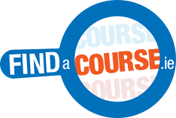


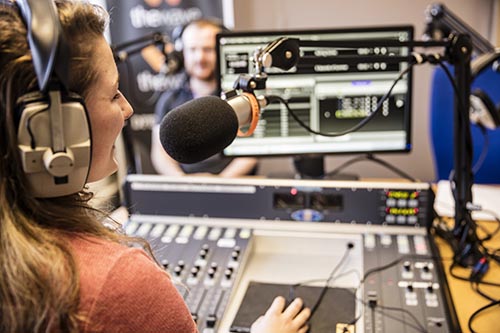

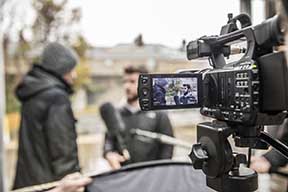
 Distance Learning and Online Courses are offered in a number of different formats, these include correspondence courses (by post), online via computer or a combination of online and classroom instruction (blended learning).. View
Distance Learning and Online Courses are offered in a number of different formats, these include correspondence courses (by post), online via computer or a combination of online and classroom instruction (blended learning).. View 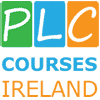 Further Education and PLCs (Post Leaving Cert Courses) have become a popular alternative to the CAO system here in Ireland. PLC Courses are validated by QQI (Quality & Qualifications Ireland) at levels 5 & 6 of the NFQ.. View
Further Education and PLCs (Post Leaving Cert Courses) have become a popular alternative to the CAO system here in Ireland. PLC Courses are validated by QQI (Quality & Qualifications Ireland) at levels 5 & 6 of the NFQ.. View 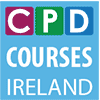 Continuous Professional Development (CPD) helps to keep job skills and professional knowledge up to date and ensures the standard of registrations & qualifications are maintained.. View
Continuous Professional Development (CPD) helps to keep job skills and professional knowledge up to date and ensures the standard of registrations & qualifications are maintained.. View 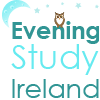 Evening courses and part time learning options are a great way to enhance a CV, to socialise and make friends, as well as learn something completely new. There are an abundance of night courses and evening classes available.. View
Evening courses and part time learning options are a great way to enhance a CV, to socialise and make friends, as well as learn something completely new. There are an abundance of night courses and evening classes available.. View